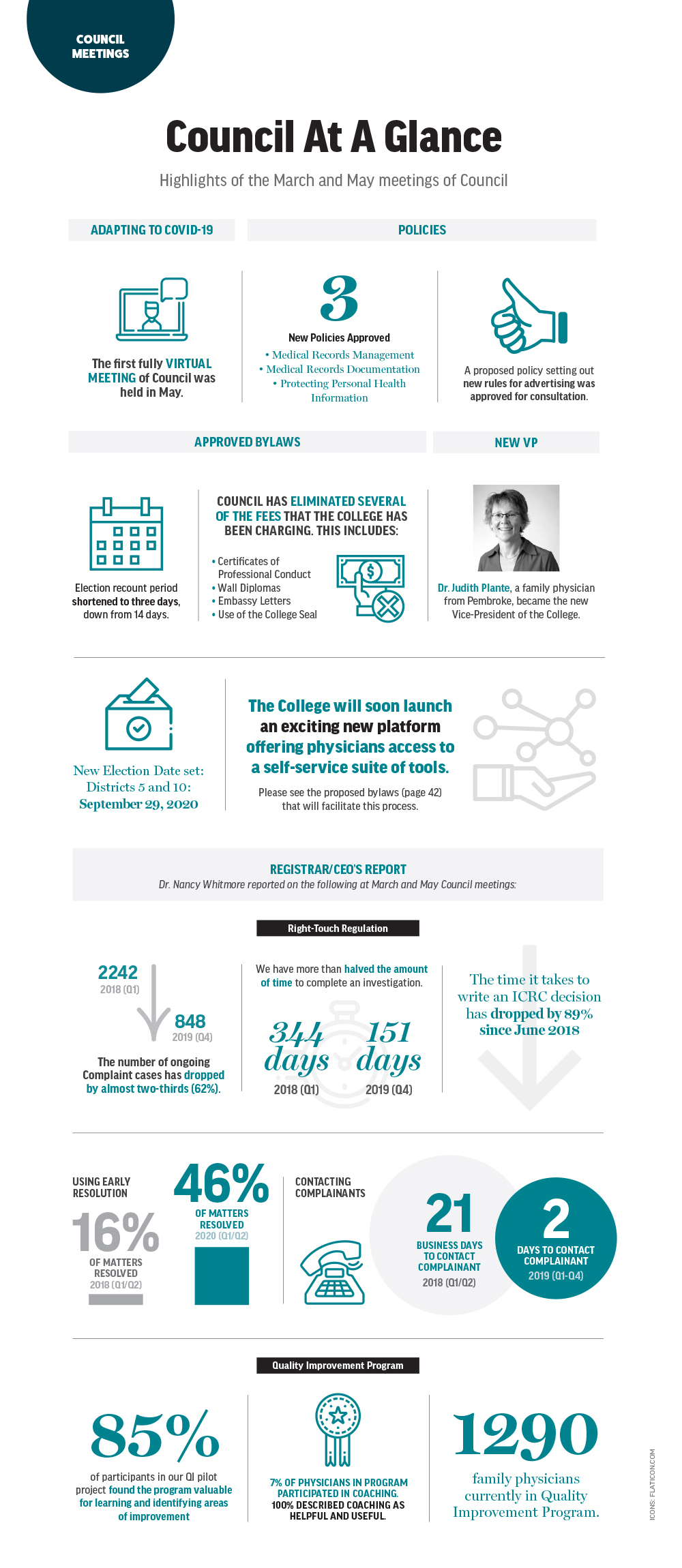The following are highlights of the March and May meetings of Council.

Council at a Glance infographic transcript
Adapting to COVID-19
The first fully virtual meeting of Council was held in May.
Policies
Three new policies received final approval. These are Medical Records Management, Medical Records Documentation and Protecting Personal Health Information.
A proposed policy setting out new rules for advertising was approved for consultation.
Approved By-Laws
The period to request a recount following Council elections was shortened to three days, down from 14 days.
Council eliminated several of the fees the College charged. This includes:
- Certificates of Professional Conduct
- Wall Diplomas
- Embassy Letters
- Use of the College Seal
New VP
Dr. Judith Plante, a family physician from Pembroke, became the CPSO’s new vice-president.
Other News
A new election date was set for Districts 5 and 10: September 29, 2020
The College will soon launch an exciting new platform, offering physicians access to a self-service suite of tools.
Registrar/CEO Report
Dr. Nancy Whitmore, the College’s Registrar/CEO reported on the following:
Right-Touch Regulation
The number of ongoing cases dropped by almost two-thirds (62%) since the start of 2018. In the first quarter of 2018, there were 2,242 complaints. In the last quarter of 2019, the number was down to 848.
We have more than halved the amount of time to complete an investigation. In the first quarter of 2018, it took 344 days to complete an investigation. In the last quarter of 2019, it took 151 days.
The time it takes to write an ICRC decision dropped by 89% since June 2018, from 26.4 weeks to 2.86 weeks.
We are using early resolution more often. In the first half of 2018, we only used early resolution in 16% of cases. By the first half of 2020, we were using it in 46% of matters.
We are contacting complainants more quickly upon receipt of a complaint. It took us 21 business days to contact a complainant in the first half of 2018 and only two days by the first half of 2019.
Quality Improvement Program
85% of participants in our Quality Improvement pilot project found the program valuable for learning and identifying areas of improvement
Seven percent of participants in our Quality Improvement pilot project received coaching and 100% of these physicians described the coaching as helpful and useful.
There are currently 1,290 family physicians participating in the Quality Improvement Program.












